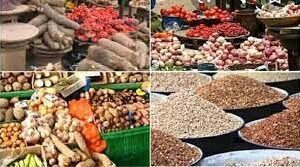A researcher, Prof.
Olubunmi Alawode, from the Department of Agricultural Economics, University of Ibadan, has stated that despite massive investment by the government in agriculture over the years, most farmers still face various land use constraints which translates into low productivity agriculture in Nigeria and have negative effect on agricultural commercialisation.
Presenting a paper titled: “Agricultural Land Market and Commercialisation Among Crop Farmers in Nigeria,” at the just concluded USAID supported second conference of the Feed the Future Nigeria Agricultural Policy Project recently in Abuja, Alawode, said improved access to land through rent increases the level of commercialization of crops by farmers.
According to her, family inheritance is still the dominant means of land acquisition in Nigeria, but farmers acquired land through transactions and participated in land market.
She therefore call on the government to develop policy aimed at improving the functioning of land markets to help in securing higher levels of marketable surplus of the semi-subsistence farmers.
Adding that the emergence of dynamic land markets would complement the government based land allocation which are often times characterized by inconsistency in land accessibility.
She said participation of farmers in crop market is also low as almost one-quarter of the farmers sold less than a quarter of their crop produce, except South West, where more than half of farmers’ produce were sold; the zone driving commercialization in Nigeria is the South West.
“Based on the findings from this study, the following recommendations are made: “Government should provide adequate security to facilitate re-settlement of displaced farming population and peace of mind to farmers across the geopolitical zones to make farmers stay on the farm.
This will facilitate higher level of commercialization to support the economy diversification bid of the government.
“Identified the means of acquisition of agricultural lands in Nigeria and assessed the participation of crop farmers in land market in Nigeria.
“Assessed the extent of crop commercialization among farmers in Nigeria and analysed the effect of farmers’ participation in land market on crop commercialization in Nigeria,” she said.
She stated further that commercialization among farmers is assumed to lead towards more specialized production systems, which are based on comparative advantages in resource use.
“Land is the most important resour input in Nigeria.
Policies affecting it affect the farming population more than other members of the community.
“The transition from subsistence to commercial agriculture is often referred to as the commercialization of agriculture, and this has long been considered an important part of the agrarian transformation of low income.
“Like any other factor of production, land, more importantly, good land for agriculture, is subject to the problem of scarcity and being an immovable resource, competition over land is higher.
“Nigeria agriculture is dominated with small scale farmers who are facing serious problems in getting good land due to progressive increase in population and urbanization, land degradation, and inadequate planning,” she concluded.
Blueprint gives you the latest Nigerian news in one place. Read the news behind the news on burning National issues, Kannywood, Videos and the Military



